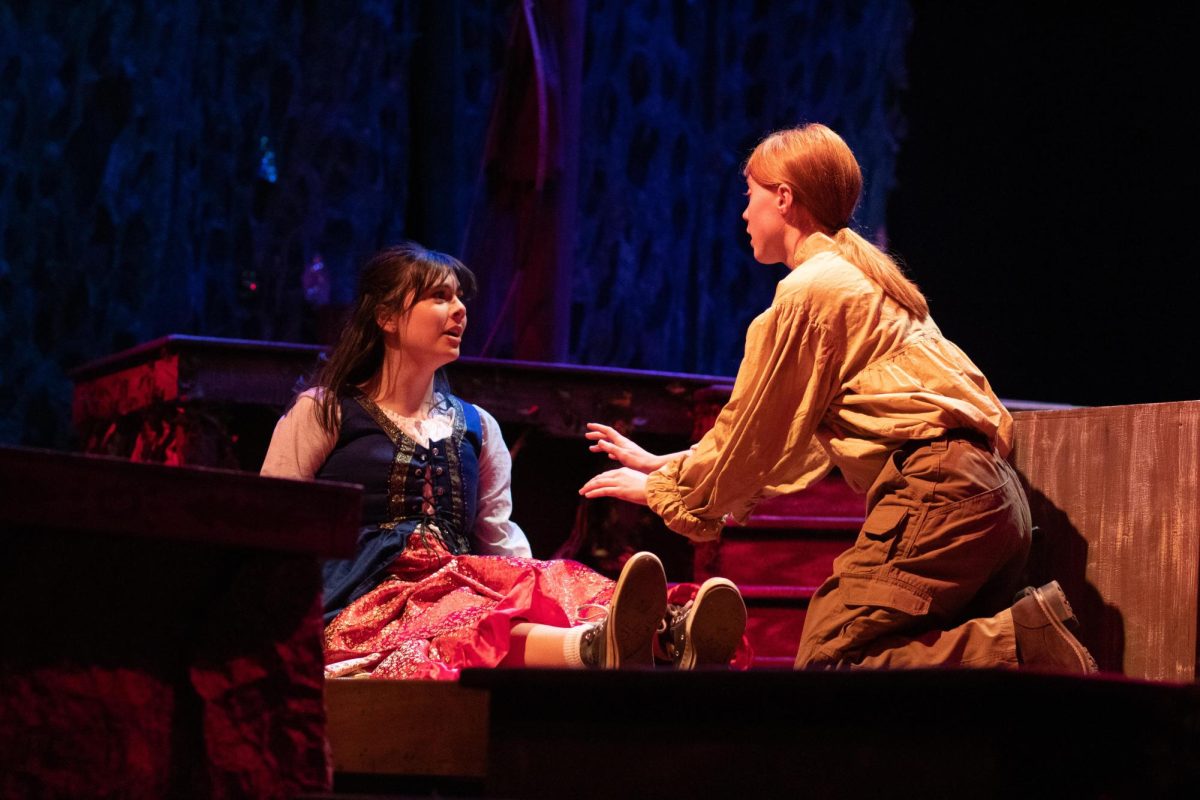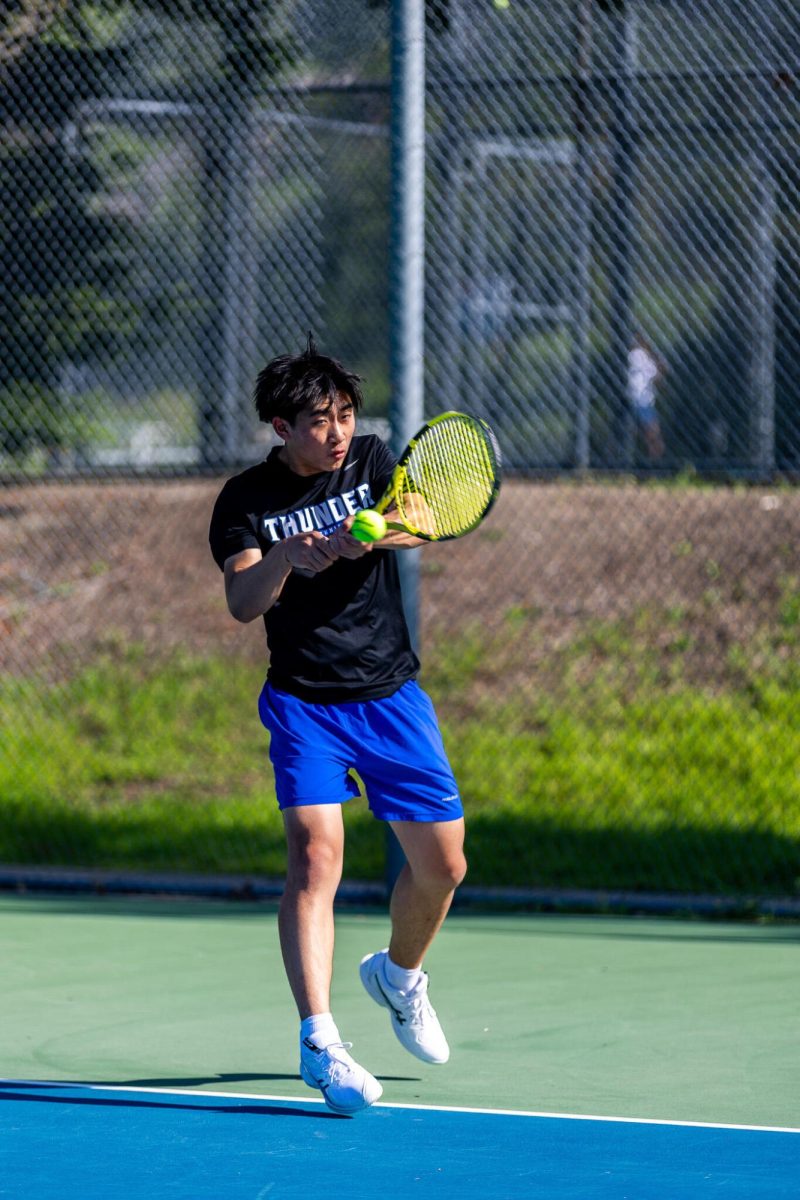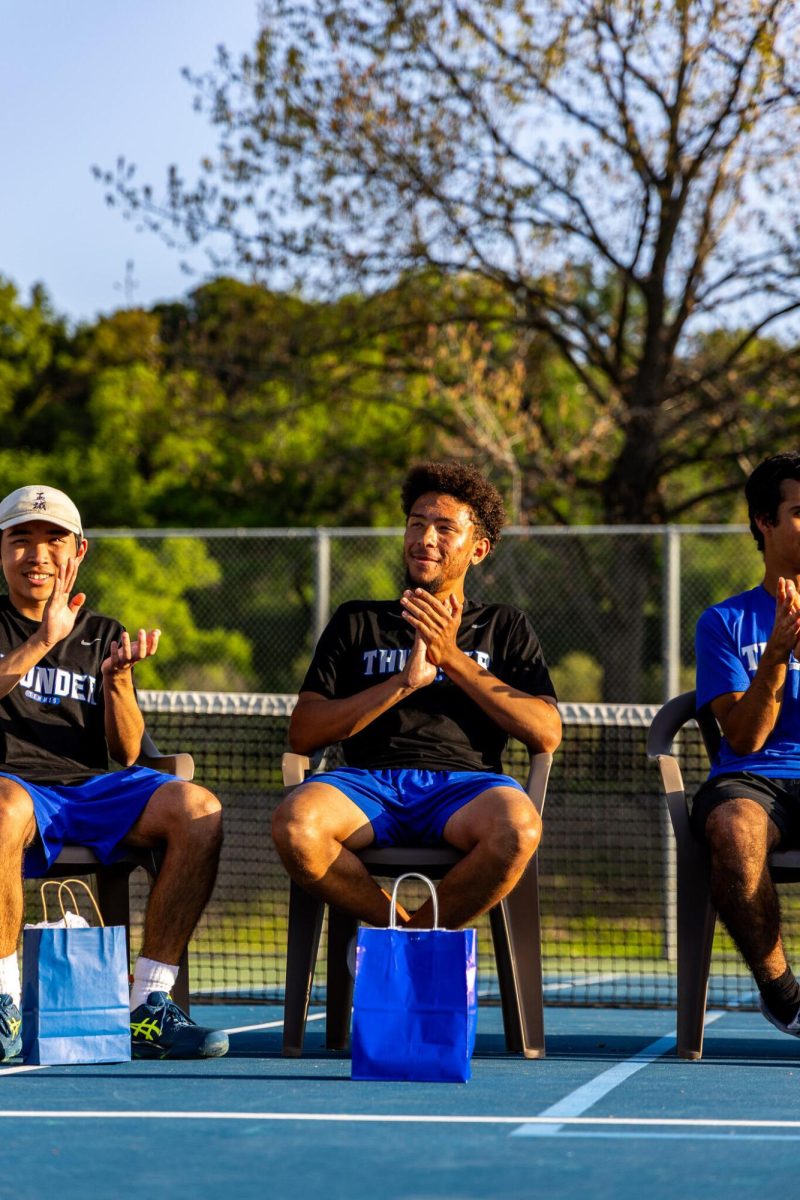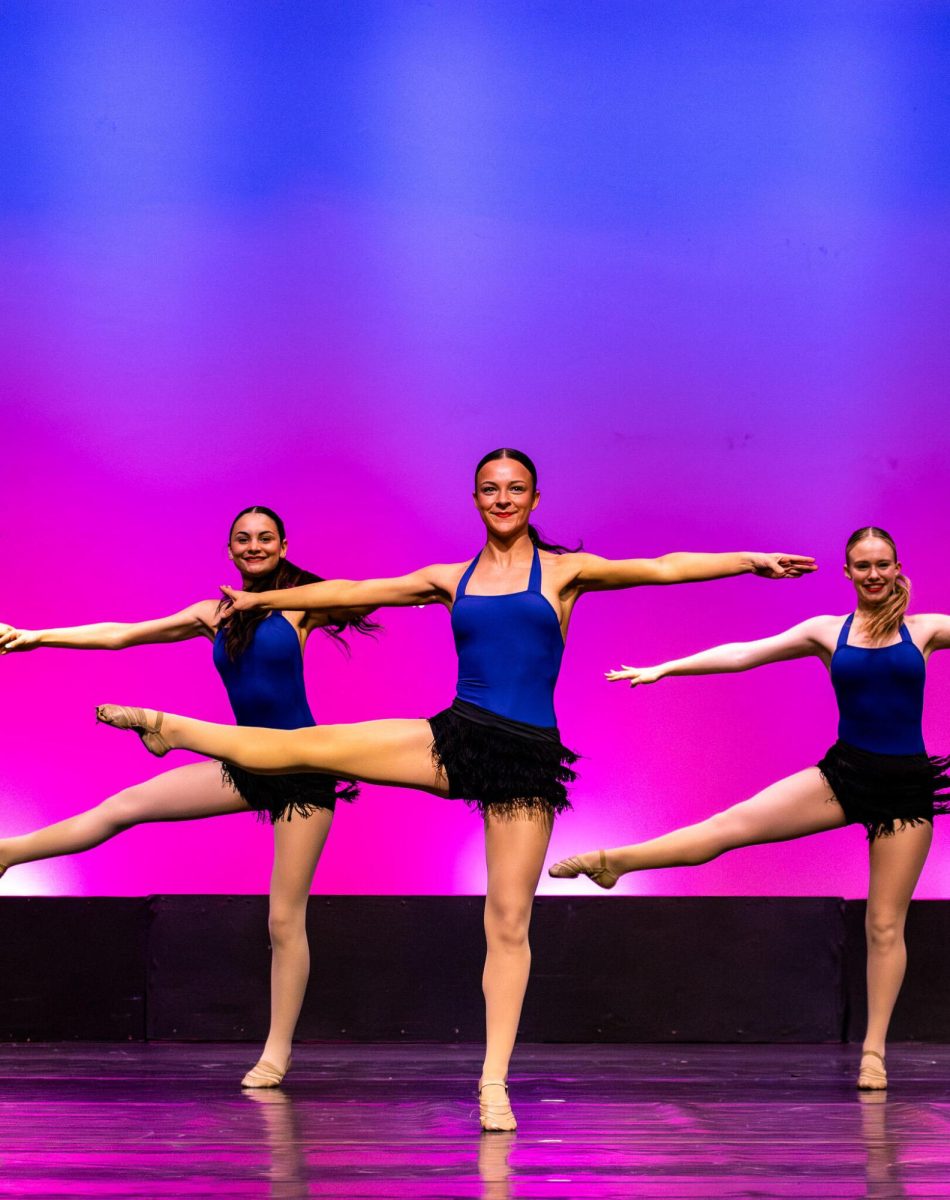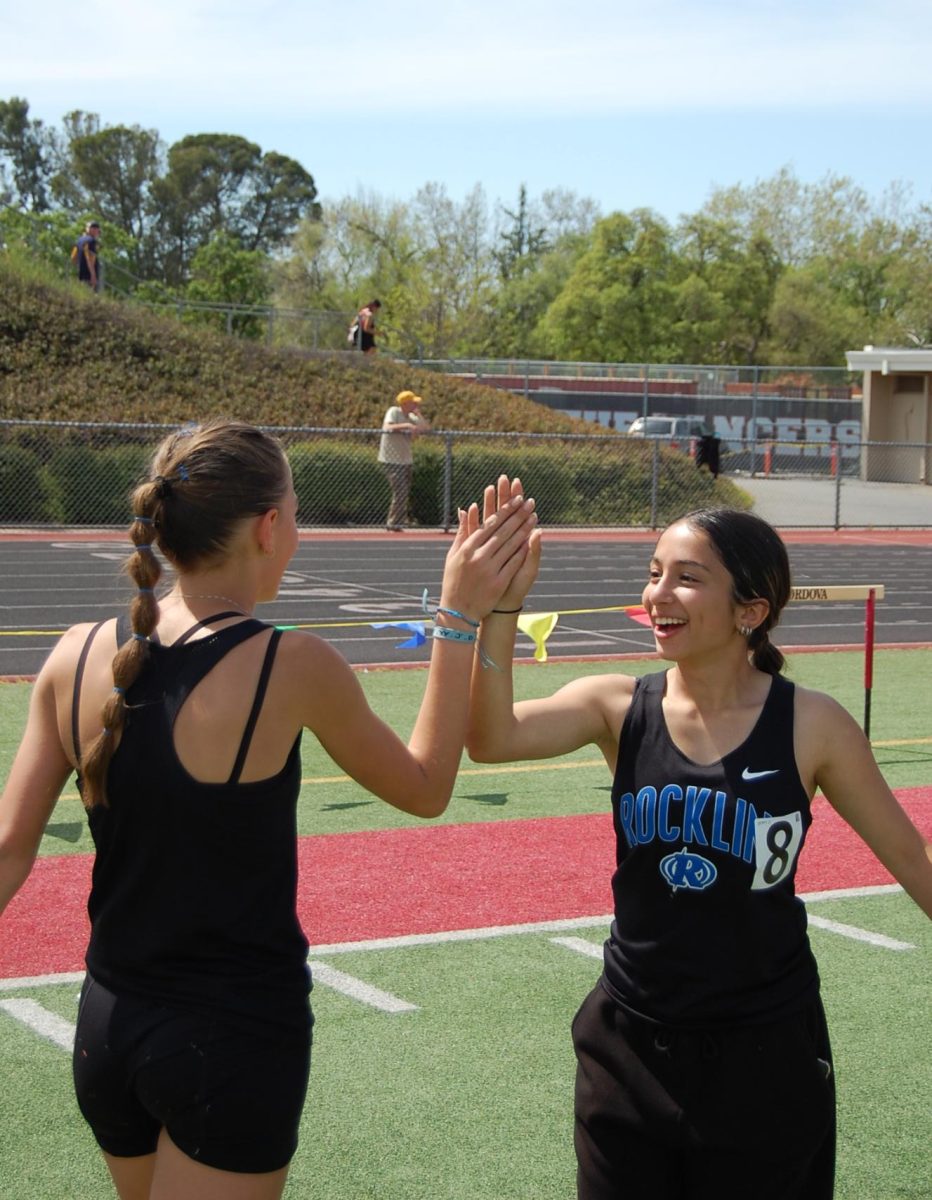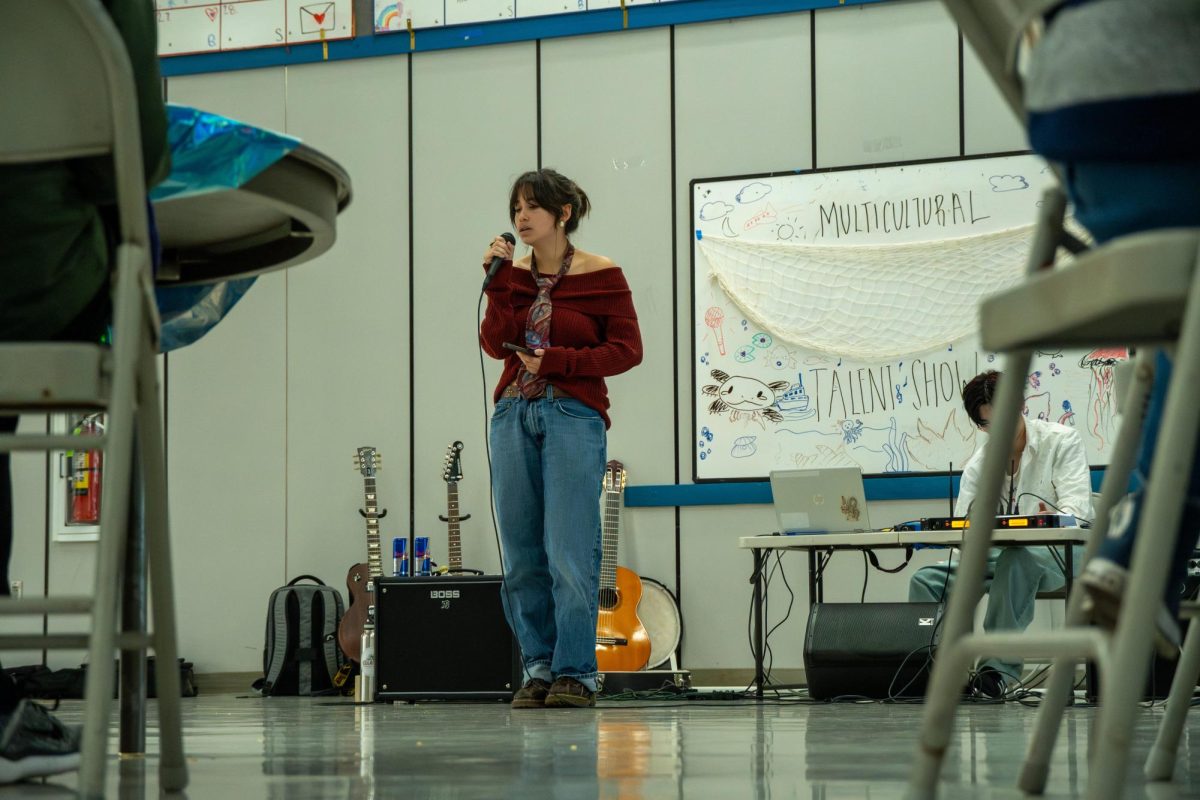The curtains opened on the Rocklin High School fall play, the “Twelve Huntsmen,” on Nov. 13. Magical apples came to life and told Brothers Grimm fairy tales with a creative spin. The audience saw a finished product of about two hours long. What many will never get to see are the months of work that went into this play.
All plays start with the audition process. At RHS, the audition process changes based on the situation. Senior Ben Sackinsky is a student director in the RHS theater program, meaning it was his job to help cast the “Twelve Huntsmen.”
“We had 60 kids audition, so we had to pull from those kids and call [them] back for roles,” Sackinsky said. At callbacks, students auditioning then had to read sections of scenes and were judged on their acting skills. After this, the cast list was released. The cast then moved into the next stages of blocking, staging, and set design, in which cast members figure out where to position themselves and how to move around the stage during their scenes.
All of this happened very early on in the year so that the actors would have enough time to prepare themselves for the final shows. Since August, the cast rehearsed for two hours after school each day, Monday through Thursday. During tech week, in which technical elements such as sound and lighting are introduced to rehearsals, the actors rehearsed for three and a half hours after school each day.
Putting together a two-hour-long production is no easy work. There are several components that are very important in order to put on a successful play. RHS sophomore Gavin Blank, who played the roles of a storyteller, Eddie the giant, and a servant in the play, said that cues were instrumental. In the theater world, cues signal another actor when it is time for their line or entrance. Blank said, “If you don’t have your cues down, it will kind of kill the show, because it’ll just be so much more of a slower pace.”
Of course, people can still occasionally miss their cues, in which case Blank said experienced actors usually try to help out or cover the mistake by using ad libs. These are improvisational lines made up on the spot. Blank recalled a time when someone missed a cue during the musical last year. “Somebody didn’t come on. We were waiting for almost a minute, and we just had to fill that space with ad libs. But nobody noticed,” he said.
Another important factor that contributes to a successful play is cast dynamics. RHS senior Ashton Chiang helped to run sounds and lights for the “Twelve Huntsmen” and was also cast as Prince Karl and a storyteller. Chiang said important things to having a successful play were “being able to get along with the people you’re working with, [being] very open minded, [and being] open to changes.”
Sackinsky agreed with the importance of having “a cast that is connected and willing to work. Because if you don’t have that, then the whole show will just crumble.” In order to ensure the cast has close relationships, Sackinsky said they have “cast bonding days where we will do pump-ups, which means that we have hype sessions.” He compared these days to a team huddle for a sports team.
Whatever role they play, many people in theater have formed strong bonds through the program. Chiang said, “I love the people. I love the environment. All of my friends are in theater, and I love working with them.” Both Blank and Sackinsky also emphasized how welcoming and supportive the community of theater is, with Sackinsky saying the theater has a “family feeling.”
“If you ever need a place to go, the theater is your place,” Blank said.



